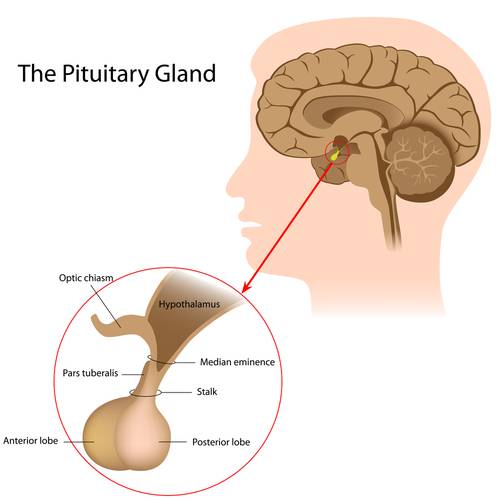It’s Tuesday morning. You wake up for work at your normal time. But something is off. You just don’t feel right. You manage to make it to work, but it’s one of those days that you just feel wrong. Your brain does not want to work and you are in a bad mood. Your body hurts all over. Then it hits you. Maybe it’s from training the night before.
If you are like most Brazilian jiu jitsu practitioners, the sport is your hobby. You train a few days a week and work full time or go to school. The everyday stress of life and training can create a poor environment for recovery. In reality, recovering from training should start long before your class starts. You need to start looking at yourself as an athlete. Even if you have never competed in a tournament, you are still training like a competitor. The intensity and volume of work placed on the body during a BJJ class is the same as a high-level athlete. The way you eat, sleep, and hydrate needs to meet these high levels, as well. Going all day on coffee, eating the typical lunch of a sandwich or not eating at all, and then hitting the mats does little to prepare the body for the stress of training.
People think proper recovery is having a protein shake after they workout. Your post workout meal is only one piece to a complex puzzle. Recovery is like putting together a big jigsaw puzzle. If you are missing any of the pieces you won’t be able to complete it.
The Puzzle Pieces of Recovery
Before putting together a puzzle you must first lay out all the pieces and make sure they are all there. For proper recovery your pieces are sleep, nutrition, and tissue work. If you are missing any of them, then your recovery is going to suffer. Poor recovery can affect your mood, increase your chance of injury, and reduce performance.
Puzzle Piece #1: Sleep
During training you are producing a stress on the body in the hopes of a specific adaptation. That specific adaptation does not take place during the actual training. It occurs when the body is resting. Most of the repair process takes place when we are sleeping.
 Sleep is the most important piece of the recovery puzzle. We all know getting a good night’s sleep is valuable for us, yet it’s one of the first things people ignore. You may be asking why sleep is so important. First, sleep has a large impact on your hormones. The pituitary gland, considered the master gland, controls the secretion of other hormones from the peripheral endocrine glands. The function of the pituitary is affected by our sleep. For optimal hormone levels we need our pituitary to function properly. An optimized hormonal environment places our body in the proper state for recovery. Without the proper hormonal environment proper recovery will be difficult.
Sleep is the most important piece of the recovery puzzle. We all know getting a good night’s sleep is valuable for us, yet it’s one of the first things people ignore. You may be asking why sleep is so important. First, sleep has a large impact on your hormones. The pituitary gland, considered the master gland, controls the secretion of other hormones from the peripheral endocrine glands. The function of the pituitary is affected by our sleep. For optimal hormone levels we need our pituitary to function properly. An optimized hormonal environment places our body in the proper state for recovery. Without the proper hormonal environment proper recovery will be difficult.
Puzzle Piece #2: Nutrition
Nutrition is confusing. One day carbohydrates are good, the next they are bad. Nutrition for BJJ can be a whole article by itself. What is important to understand is that what you eat causes a hormonal change in the body. The type of food you eat, when you eat it, and in what quantities you eat it can hurt or help your recovery.
First, focus on how much you are eating. It does not matter if you are eating paleo or vegan, if your calories are too low then you are not going to recover. Second, get the bulk of your carbohydrates after you train. Training causes stress on the body that results in a release of cortisol. Cortisol starts to rise right before your training session begins. The rise in cortisol is telling your body to prepare for the stress ahead. After training you want to slow down that cortisol response. The easiest way to do that is by spiking insulin. When insulin is high, then cortisol is low. After your training session, focus on protein and fast-digesting carbohydrates like ripe bananas, white rice, or carbohydrate powders.
Second, drink plenty of water. Dehydration will destroy your performance and recovery. The amount of water you should drink depends on bodyweight, how much you sweat, and your training environment. Just be smart about it. And drink water all day, not just when you are training.
Puzzle Piece #3: Tissue Work
Tissue work gets easily passed over. If you are like most Brazilian jiu jitsu athletes you head to the gym right after work in a rush and leave in a hurry to get home to see your family. The last thing you are thinking about is foam rolling.
 Get in the habit of doing tissue work at night. Foam rolling at night is a great way to relax and shut down your fight-or-flight system before bed. Dr. Kelly Starrett, of MobilityWOD, recommends his athletes save their deep tissue work for the night in order to calm the parasympathetic nervous system. Take ten to twenty minutes before bed to do some tissue work instead of watching television. This will slow down the body and enhance your sleep.
Get in the habit of doing tissue work at night. Foam rolling at night is a great way to relax and shut down your fight-or-flight system before bed. Dr. Kelly Starrett, of MobilityWOD, recommends his athletes save their deep tissue work for the night in order to calm the parasympathetic nervous system. Take ten to twenty minutes before bed to do some tissue work instead of watching television. This will slow down the body and enhance your sleep.
Conclusion
The first thing a child does after putting a puzzle together is show everyone. Then the child takes it apart and does it again. Recovery is similar. Everyday you start with the pieces all over the coffee table. Everything you do during the day is to place a puzzle piece in the proper spot. By the end of the day your puzzle should be complete. If you are missing any of the pieces the puzzle will never be complete.
Photos courtesy of Shutterstock.






